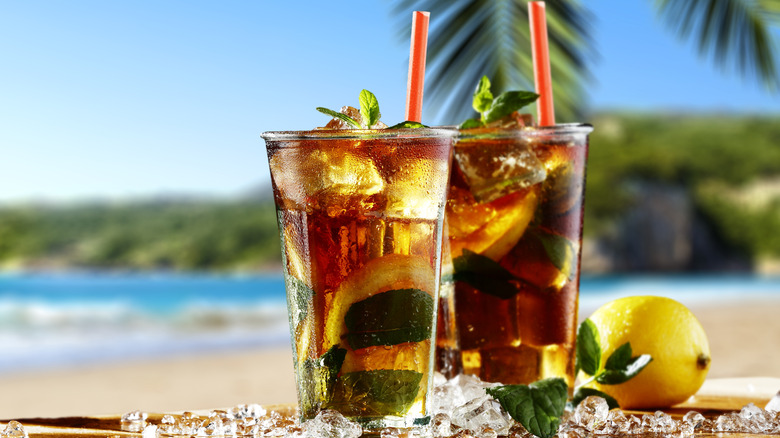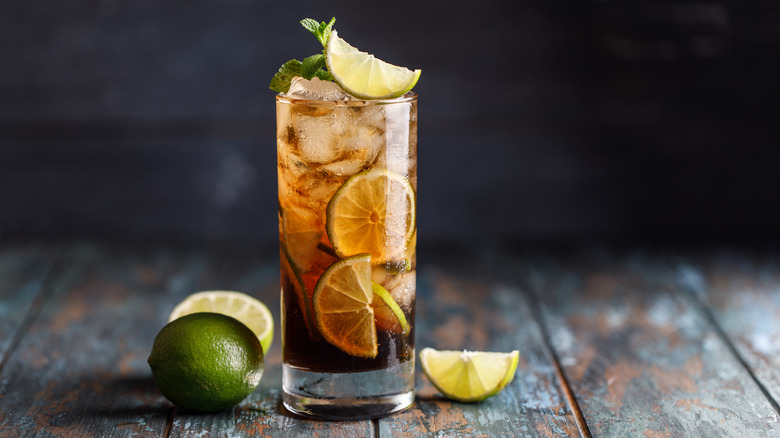The Bizarre Origin Story Of The Long Island Iced Tea
Most cocktails are conveniently named after the place where they were invented. The Manhattan is named after the Manhattan Club of New York where it was first concocted, Irish coffee is the product of a restaurant on an airport in Ireland, and the Long Island iced tea is said to have originated in Long Island, New York (via The Daily Meal).
The seemingly innocent but highly potent cocktail is responsible for many blacked-out nights followed by ferocious headaches and somersaulting bellies. A bartender named Robert Butt from Long Island's Oak Beach Inn has stated that he invented the drink, claiming that the beverage was the ticket to his entry into a cocktail-making competition in 1972 where bartenders were asked to make original drinks with the use of triple sec (via The Culture Trip). So came the mix of tequila, vodka, gin, rum, triple sec, and a splash of coke — a drink that is said to have a 22% concentration of alcohol.
Whether or not Butt won the competition or whether there was one at all, the drink is said to have been a raging hit amongst the masses. However, there is another possible origin story that places the formulation in a completely different part of the country.
Tennessee claims that the cocktail was an invention of the Prohibition Era
If Butt's claim is to be believed, the Long Island iced tea is only half a century old, making it one of the newest drinks in the world of cocktails (via The Culture Trip). The city of Kingsport in Tennessee however, disagrees. Visit Kingsport's Marketing Manager Amy McColl told ABC News that Long Island iced tea has been around in Tennessee since 1920, "we've been doing this for 50 years before you all even thought about it," she rebukes the supporters of New York's claim.
According to Tennessee's claim, Long Island iced tea was invented in Long Island, an island in Kingsport, and not New York. Charlie "Old Man" Bishop was an illegal alcohol maker during the 1920s Prohibition Era on the island when he invented a certain version of the drink without triple sec or coke: rum, vodka, tequila, gin, whiskey, and maple syrup. The Culture Trip says that the inconspicuous name of the spiked iced tea might have helped during a time when the making and selling of liquor was banned. It is also possible that the drink's notoriously high alcohol content may be a result of the Prohibition Era when alcohol was hard to come by and each sip of the potent drink mattered.

